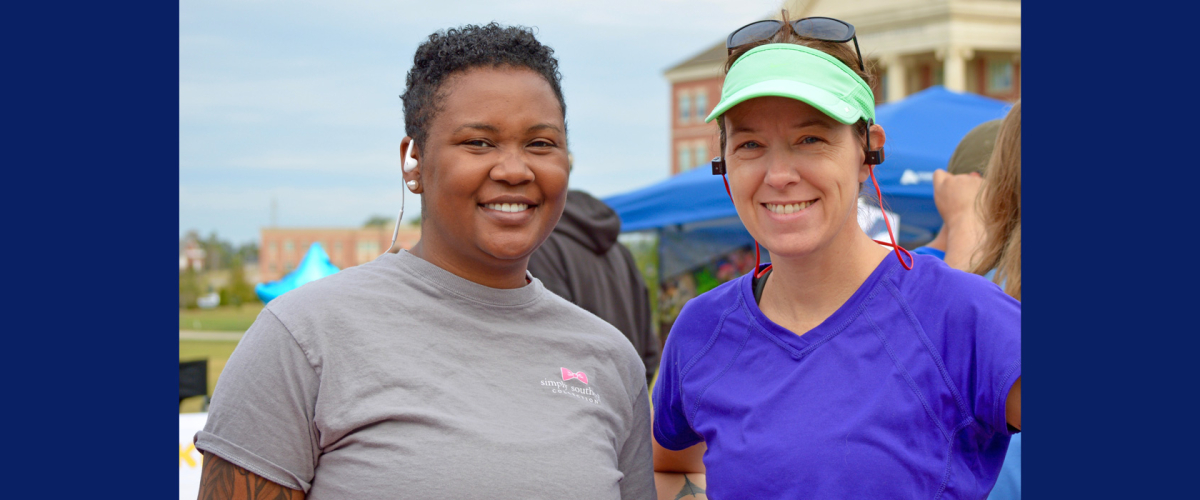
We are experts in community-engaged clinical research.
For more than 15 years, Duke Kannapolis has developed and implemented a community-based approach to clinical research, considered the gold standard. We believe that our participants are valued partners, and we place them at the center of everything we do. Our community has responded to this approach with ongoing dedication to clinical research studies that aim to improve health for generations to come.
The Duke Kannapolis Community Engagement team is well-connected across the Charlotte, N.C. region and provides a wide variety of strategies and tactics to meet recruitment and retention needs, including targeted recruitment of cohorts identified from existing participant populations.
Recruitment and Retention Strategies: Recruiting Participants
Interest surveys are used to determine study feasibility and obtain direct input from potential study participants regarding their preferences, interests, and insights.
Targeted recruitment is conducted by email, text, phone, and U.S. Postal Service, as well as social media and refer-a-friend campaigns.
Recruitment is available from two substantial community registries, including the MURDOCK Community Registry and Biorepository and the Duke Research Volunteer Registry.
Successful outreach is based on the trust built after 15 years of presence in the local community, with the Duke brand and reputation for excellence. We have extensive partnerships with local churches and community partnerships that include seats on pivotal boards of directors, as well as active civic engagement with municipal governments, school systems, senior centers, and more.
Our North Carolina Research Campus partnerships feature a public health department, seven universities in the UNC System, a community college, and multiple private companies.
Our medical partnerships include private and public healthcare systems and providers, as well as federally funded community health clinics.
Outreach also includes canvassing in neighborhoods with historically underrepresented populations and frequent recruitment tables at community events that can include branded “swag” items related to a specific study, such as pens, stress balls, notepads, etc.
Active, engaged boards are made up of stakeholders, participants, healthcare providers, and community leaders who guide and advise recruitment and retention efforts, as well as provide vital boots-on-the-ground insights for study leadership. Board members and participants also serve as “neighborhood ambassadors.”
Recruitment (or retention) events are held at churches, fire departments, schools, and colleges or in conjunction with other community events, such as health fairs. These events can include arrangements for transportation.
Study materials and study enrollment are available in both English and Spanish, as requested. Expert translation services are available from highly trained staff.
Recruitment and Retention Strategies: Retaining Participants
We have an extensive, engaging social media presence for retention and recruitment of participants via Facebook, Instagram, and Twitter, with nearly 10,000 combined followers. Our YouTube channel hosts retention, engagement, and educational / how-to videos, making distribution to participants easy and user-friendly.
We utilize both study-specific newsletters emailed to participants and general newsletters with updates, events, staff bios, and communications from leadership. Our monthly COVID-related study newsletter sustained an 80% open rate for 16 months.
We have extensive relationships with TV and print media outlets throughout the Charlotte region. Our strategic media campaigns featuring participant testimonials about their positive study experiences. This is also a compelling way to communicate study milestones and research findings.
Events are held at study start-up to educate and recruit community members, as well as throughout the study lifespan to retain participants and return results. Featured speakers include PIs and other content experts, with robust, bidirectional participant engagement and lively Q&A sessions.
Events are held both for the community at large and for invited, study-specific audiences. Virtual events utilize our skilled team to host and organize Zoom events, including the use of breakout rooms.
In-person events include fitness and wellness events, health fairs, and public service opportunities.
Participants want to know not only their results, but the (preliminary) results of the research with explanations of the impact of their contributions.
Posting plain language summaries — in addition to the full text .pdf scientific articles — allows for either a citizen-scientist or non-scientist to understand study results.
Recruitment and Retention Strategies: Measuring Success
To sustain annual follow-up for the MURDOCK Study, we strategically chose three focus groups: participants with high engagement, participants with average engagement, and participants who had never completed any follow-up. Participants in each category attended in-depth focus group sessions with study leadership. Participant feedback was used to identify and incorporate several improvements in the follow-up / retention process.
We routinely collect metrics around referral sources for each study to ensure that we are using our recruitment resources wisely. We debrief after each study on lessons learned.
We track metrics on the number of events we attend that relate to “networking” (new relationship building), relationship maintenance, recruitment, and community-related board meetings. In 2019 — the most recent year with complete metrics before the pandemic — we invested nearly 300 hours in events and meetings, presented to nearly 10,000 people, and interacted with nearly 6,000 potential study participants.
By utilizing the above recruitment and retention strategies, recent enrollment examples (during COVID-19) include:
-
COVID-related study
-
Enrolled more than 1,400 participants within three months
-
Sustained 98% compliance with a bi-weekly survey over 33 cycles
-
Sustained 90% compliance with home-based nasal swabbing and monthly onsite serology in a study subset
-
Enrollment of underrepresented populations reflected the demography of the community by census percentage
-
-
African ancestry-related study
-
Enrolled 181 participants in a genetics study specific to only people of African Ancestry
-
Enrollment involved one on-site visit and sample donation during a 16-month period
-